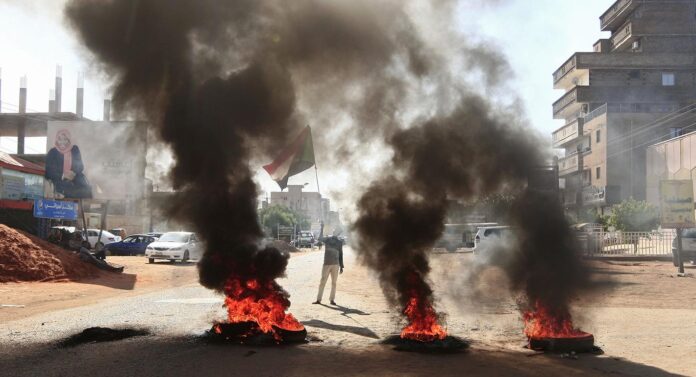Author: Yezid Sayigh
Affiliation: The Malcolm H. Kerr Carnegie Middle East Center
Organization /Publisher: The Malcolm H. Kerr Carnegie Middle East Center
Date/Place: March 17, 2021/Lebanon
Type of Literature: Article
Word Count: 1467
Keywords: Military, Protest, Elite, North Africa
Brief:
The article analyzes the widespread protests that arose in Sudan and Algeria leading to political transition in 2019. The author, Yezid Sayigh relates the upheaval with the case of Egypt and Libya, which underwent an immature political transition in 2011, and argues that the armed forces of Sudan and Algeria will try to hold their position in political institutions and national life. The main reason is that incumbent power elites in all four countries face significant socioeconomic challenges they are patently unable to address. The elite will enter into specific negotiations with the armed forces. The form of authoritarian pacts diverges across these four North African countries, but little suggests that such pacts will disappear in the foreseeable future. The author identifies four main factors which will shape the military politics. 1) The relationship between the head of state and the military, which has been the principal anchor of authoritarian power and guarantor of regime durability. 2) The trajectory of military politics is shaped by relations and dynamics within and across the state’s coercive apparatus. Thus, there will be contestation between the armed forces and their rivals, competition between cliques and “clans” within the military, and cross-institutional linkages between officers and civilians that complicate matters. 3) The distorted development and severely circumscribed autonomy of the private sector shaping military politics. 4) The trajectory of military politics is affected by the ability of principal domestic actors to leverage foreign support. The author concludes that the militaries of these four countries are caught in a prisoner’s dilemma in which acting in their self-interest cannot produce optimal outcomes. In the post-COVID-19 period, the military may have to negotiate with other social and political actors to maintain its privileged status. Nevertheless, for now, the military remains a crucial partner of ruling elites that employs a mix of naked violence, narrow nationalism, and social exclusion to foreclose negotiation.
By: Razia Wadood, CIGA Senior Research Associate




